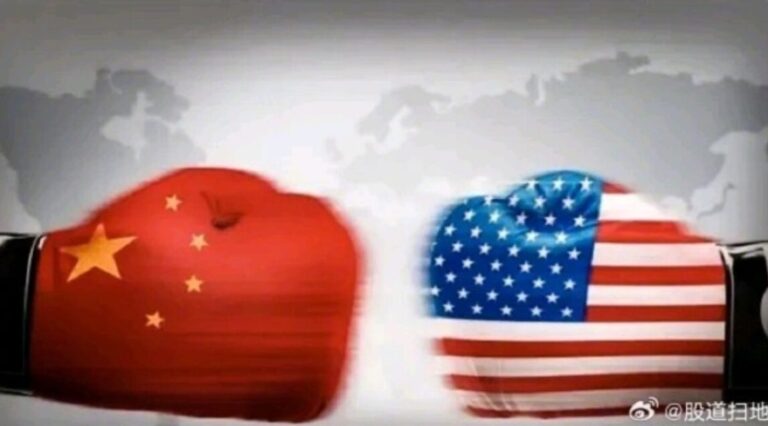In Modalen, Norway’s second-smallest municipality there is a fixed price for electricity. Residents never pay more than 21 øre (0,21 NOK) per kilowatt-hour for electricity – regardless of the weather.


By Ingrid Fiskaa, Member of Parliament for SV in Rogaland
“I’m scared. I’m scared to see what’s going on in our society now. Until now, I have had a naive belief that Norway is a well-run welfare society where we share the benefits and take care of each other.”
This is roughly how a post about the current crisis starts, which has been read and shared by very many.
The rest is a thought-provoking story about the many who struggle with small incomes and high expenses, and the consequences it has for all of us in the form of increased anger and mistrust. The thought-provoking is not the content itself. For us leaning left, this should be familiar stuff. We have been warning about increasing differences for decades already. The thought-provoking is the power of words; that they are perceived as true by so many.
High and unstable electricity prices have ignited a popular dissatisfaction we have not seen for a long time. The reasons are several: The extra bill comes on suddenly, even people with completely ordinary incomes struggle to pay, and many feel powerless. It’s cold outside, and what should one do? The confidence in the Storting and the administration had already taken a beating. Many people perceive that those who govern do not care or know how most people feel. The electricity price uprising may not survive the winter, but will in any case leave strong traces. More people than before are insecure and have lost faith that society is standing up for us.
The ones who have experienced the NAV system’s iron fist [the labor and welfare administration] will say, I told you so. The difference is that this time it hits so many more. Therefore, it is not only crucial to put in place immediate measures that can help with the worst effects of the electricity price. It is at least as important to address the root causes and to take part in the battle over the problem definition. If politicians on the left do not do that, we will leave the room to political forces that do not aim to solve problems, but who make a living from fishing in the sea of discontent.
We can take a look at how people’s electricity bill is built. For a long time, different standard fees have been the majority of what we pay. Reducing or changing “flat” fees can be part of the solution, as in practice they affect very differently. But that’s not where the big battle is. It is the market price of the electricity that has now reached extreme heights, and which also varies so much and so abruptly that it makes people insecure. The answer is therefore to take control of the electricity price. Why should we actually have a market price for something that is mainly owned by the community, and that everyone is dependent on? Electricity should be counted as infrastructure in line with water and sewage, and sold at cost price for a sober consumption in our homes. Agriculture and industry must also secure long-term power contracts at a reasonable price.
The answer is to take control of the electricity price.
(Read) Regulation, that is.
By opening the political toolbox, we can achieve several goals: Safe finances for households, good conditions for food production and industrial development – and at the same time avoid social unrest and progress for the far right. The problem is only that market management is enshrined in the Energy Act and strengthened through its connection to the European energy market. It, therefore, requires fundamental changes that there so far has been no willingness to address. But this space is about to expand.
There is currently a fierce battle over the problem description. Is the main problem climate policy, a greedy state, or market power over democracy? Different stories give completely different answers. The current crisis has the power to shift both political loyalties and frameworks of understanding. The political landscape can break in pieces – with the dangers and opportunities it presents.




29 Comments
Pingback: Norwegian export cables have caused price contagion from the continent, eliminating the Nation's foremost Competitive Advantage - Bergensia
Pingback: มักหวย กับทางเข้า ที่ใช้งานได้ ดีที่สุดแห่งปี 2024
Pingback: รับจำนำรถใกล้ฉัน
Pingback: car detailer
Pingback: มวยไทยไฟต์ เปิดให้เดิมพัน มวยไทยวันนี้ กับเว็บพนันออนไลน์
Pingback: nohu
Pingback: จดแจ้งเครื่องสำอาง
Pingback: Lsm991 เว็บพนันไม่ผ่านเอเย่นต์
Pingback: stapelstein
Pingback: Pixio
Pingback: เว็บสล็อตอันดับ 1 ของคนไทย LSM99
Pingback: mostbet
Pingback: Giriş yapmak
Pingback: Dragon Hatch 2
Pingback: top article
Pingback: บาคาร่า ufa11k
Pingback: เช็คสลิปโอนเงิน
Pingback: girls outcall massage Bangkok
Pingback: ใบอนุญาตโฆษณา
Pingback: ศัลยกรรมตาสองชั้น
Pingback: เว็บปั้มไลค์
Pingback: online pharmacy la abeja
Pingback: Web Site
Pingback: Buy Villa Phuket
Pingback: บาคาร่าเกาหลี
Pingback: more info here
Pingback: วิเคราะห์ ตรวจ หวย ลาว
Pingback: คลินิกความงามใกล้ฉัน
Pingback: https://vasgold.kz/